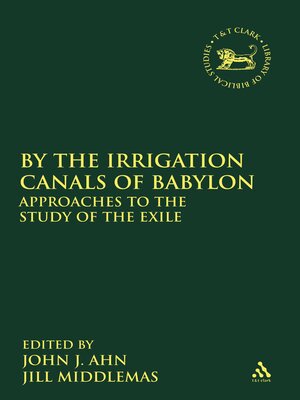By the Irrigation Canals of Babylon
ebook ∣ Approaches to the Study of the Exile · The Library of Hebrew Bible/Old Testament Studies
By John J. Ahn

Sign up to save your library
With an OverDrive account, you can save your favorite libraries for at-a-glance information about availability. Find out more about OverDrive accounts.
Find this title in Libby, the library reading app by OverDrive.



Search for a digital library with this title
Title found at these libraries:
| Library Name | Distance |
|---|---|
| Loading... |
This work assembles some of the finest scholars who have contributed to study and examination of the impact of the exile in biblical literature. Past, present, and future scholars examining the 6th century B.C.E. through historical and archeological (including paleoclimatology), literary, and the social sciences have been assembled. Approximately twelve papers from among the twenty papers presented over the four sessions (parallel to a sizable conference on the exile) will be represented in this volume.
The book will be organized in a traditional history of scholarship manner, i.e., moving from historical to sociological. It should be noted that within each subcategory, there is a forward progressive movement from a traditional starting point (Klein, Olson, Wilson) ending at the progressive or cutting edge (Beck, Ahn). Jill Middlemas will open the volume with and introductory essay. John Ahn will close off the volume by pointing to the field of "forced migration studies" as a way to help better define and demarcate the import of 597, 587, and 582.
The book will be organized in a traditional history of scholarship manner, i.e., moving from historical to sociological. It should be noted that within each subcategory, there is a forward progressive movement from a traditional starting point (Klein, Olson, Wilson) ending at the progressive or cutting edge (Beck, Ahn). Jill Middlemas will open the volume with and introductory essay. John Ahn will close off the volume by pointing to the field of "forced migration studies" as a way to help better define and demarcate the import of 597, 587, and 582.







